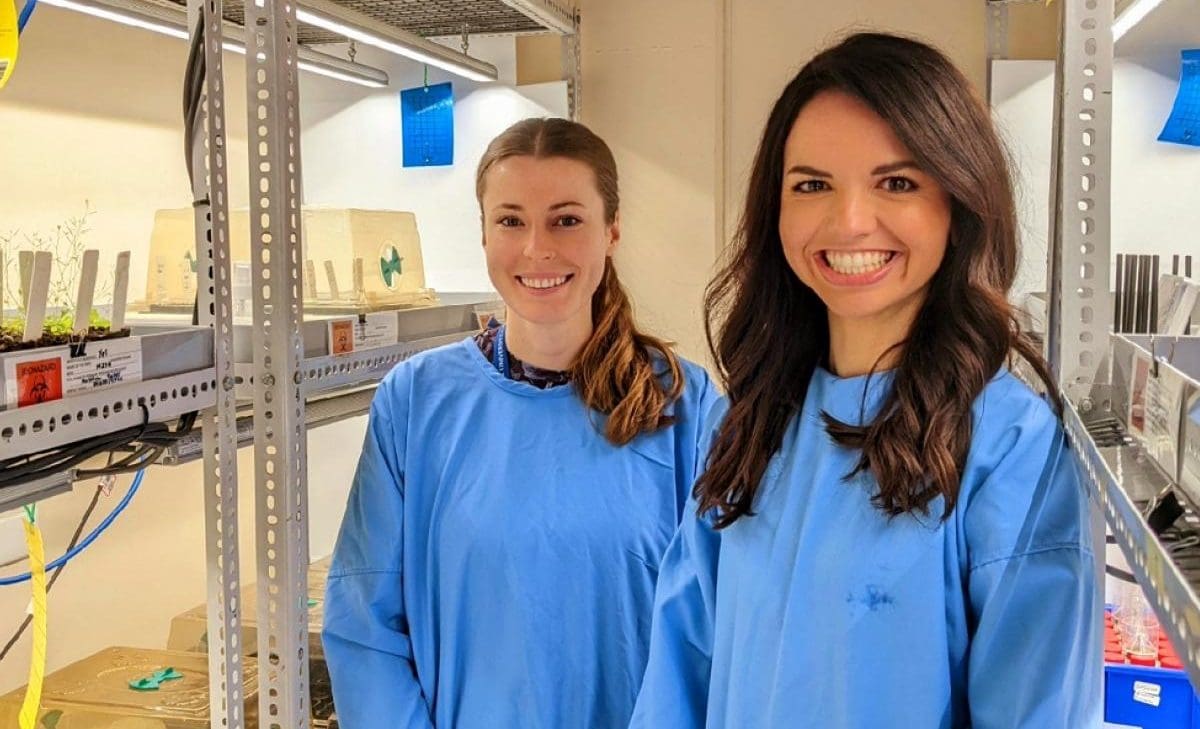
Lead author of the research paper, University of Adelaide PhD student Emily Mackie (left), with lead researcher Tatiana Soares da Costa, a Future Making Fellow at the University of Adelaide’s Waite Research Institute. Photo: University of Adelaide
WEEDS cost Australian farmers more than $5 billion annually, but researchers from the University of Adelaide and La Trobe University have discovered a way to potentially stop them dead in their tracks.
University of Adelaide’s Waite Research Institute Future Making Fellow and lead researcher Tatiana Soares da Costa said researchers have identified a compound which is key for weed growth.
“We have identified herbicidal compounds that work by blocking the production of the amino acid lysine, which is essential for weed growth,”Dr Soares da Costa said.
“This has the potential to be a game-changer for the agriculture sector, given the lack of new herbicides that have entered the market in the past 30 years.”
Dr Soares da Costa said the compounds target two steps in lysine production in weeds, which could lead to the development of multi-target herbicides for the first time.
“A multi-target herbicide could make it more difficult for weeds to evolve resistance, helping to prolong the efficacy of existing herbicides and improving crop quality and yield.
“The development of new herbicides, especially multi-target herbicides, is a high priority to combat weeds that are resistant to herbicides.
“This research is particularly significant to Australia, where herbicide-resistant weeds have invaded more than 40 per cent of cropping land, resulting in a cost to farmers of more than $5 billion per year.
“This work will directly impact farmers by giving them the tools they need to overcome weeds and improve the quality and yields of crops.
“The next steps for this work will involve large-scale field trials and toxicology screening to ensure they are effective and safe to use.”
The Soares da Costa group is working towards strategies to introduce new and safe herbicides to the market that can slow down the development of resistance.
The research has been published in eLife Sciences, titled, A dual target herbicidal inhibitor of lysine biosynthesis.
The first author on the paper is Emily Mackie, a PhD student in the Soares da Costa group, who is supported by scholarships from the Grains and Research Development Corporation and Federal Government’s Research Training Program.
Co-authors include Andrew Barrow, Rebecca Christoff, Belinda Abbott and Anthony Gendall.
Funding for this research was provided by the Australian Research Council through a Discovery Early Career Researcher Awards Fellowship to Dr Soares da Costa.
The Waite Research Institute stimulates and supports research and innovation across the University of Adelaide and its partners which builds capacity for Australia’s agriculture, food and wine sectors.
Source: University of Adelaide

HAVE YOUR SAY